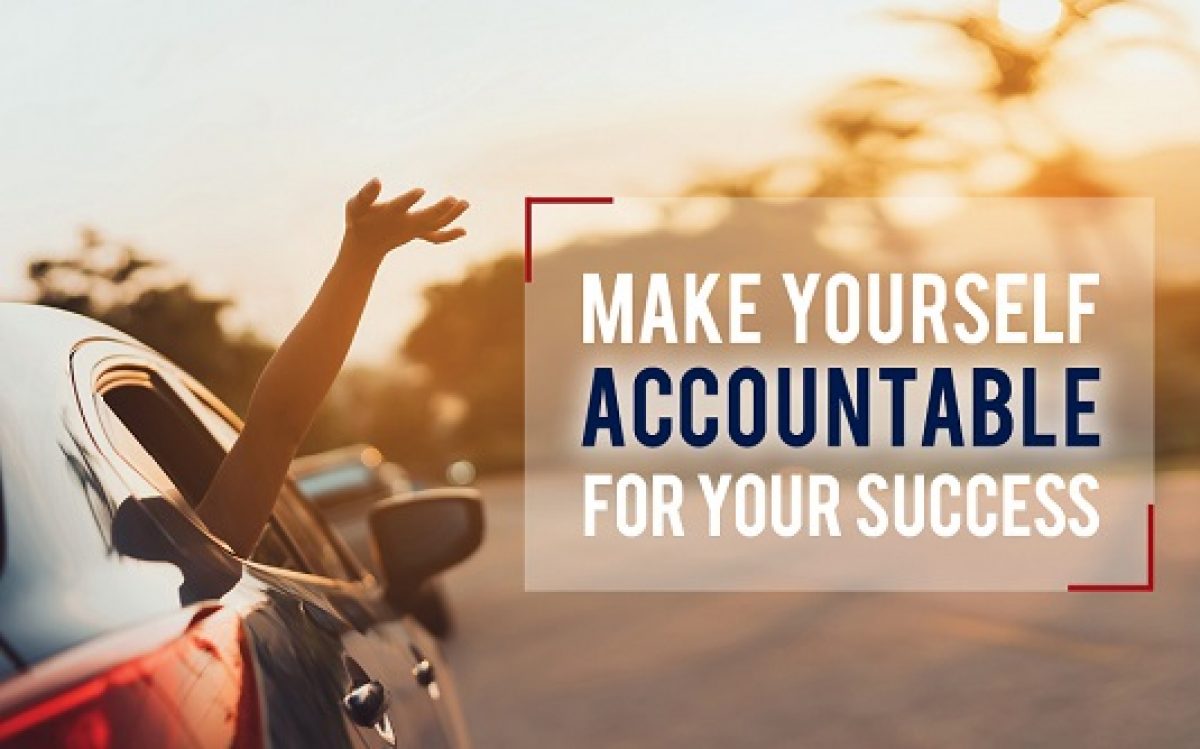Make yourself accountable for your success
When it comes to career or life goals, a crucial element often missing from the discussion is that of personal accountability. Accountability is fundamental to effective government and successful business, but we often neglect it in regards to our own ambitions. Practicing personal accountability isn’t easy, but if you embrace it, the effect can be transformative.

Transparency
A critical first step in any accountability process is transparency. This means being honest about your prior successes and failures. You can then use what you’ve learned from them to frame your strategy going forward.
Often what stops us from being honest with ourselves is an inability to accept responsibility for our own contribution to our successes or failures. This in turn can often result in a blame mentality. In every person’s life there is a mixture of internal and external obstacles that prevent us from getting what we want. The problem with always blaming what’s outside of us, is that we lose sight of what we can control. It reduces our power. The outcome can be inertia. To blame is to tread water. To be accountable is to build a raft.
Skin in the game
Indecision, procrastination and laziness are three common factors that get in the way of us achieving our goals. So how do we show some accountability and mitigate these habits? The answer is to put some skin in the game – to raise the stakes.
Let’s take the gym as an example. Your building has a free one for the tenants, but you never use it. Maybe it’s because it’s not very well equipped, but you’re also not really losing anything if you don’t go. But say the gym charges a fee. That might mean it’s better resourced, sure, but you’re also getting charged every week. Nobody wants to waste money so you go. You’ve got skin in the game.
Let’s extend the metaphor. You might decide to pay a bit more and join a class, or even splash out and get a personal trainer. Now you’ve really invested, because not only are you giving up your hard-earned cash, but you’ve got someone who will be disappointed in you if you don’t make the session. Someone else to hold you accountable.
Engaging an ally
When a task is set for you by someone else, the stakes are naturally higher because you’re accountable to them. It’s much harder to let someone else down, than it is yourself. This is why it is important to engage an ally, when working towards your goals. And to be honest, the more the better.
Allies can sort fact from fiction, give constructive feedback and encourage you when you’re feeling flat. And it is a lot harder to veer off course when you have a crowd cheering you on.
Practicing accountability
Practicing accountability becomes easier when you have in place a good set of processes. That’s why we’ve come up with this four-step process.
1. Make sure your goals are concrete. This means being specific about what they are and what they’re not. You can’t kick a goal if you don’t know where the goal posts are.
2. Record your progress. Ask any business leader, and they’ll tell you accountability requires accurate reporting. This is where transparency and diligence come in. Make sure you keep records of your successes and failures, the tasks you did, the time they took, and what they cost. Then let this frame your strategy going forward, including incremental deadlines.
3. Invest and put some more skin the game. This means giving up something that has currency to you in order to compel you to keep going. There needs to be an outcome, a material loss, that comes from not reaching your deadlines.
4. Finally, engage an ally. This can be a mentor or a friend. Someone who checks in with you and encourages you but can also give constructive criticism.
If you’ve got big dreams and need some help making them financially viable, come talk to us. We can help make a plan, and ensure you stay accountable each step of the way.
